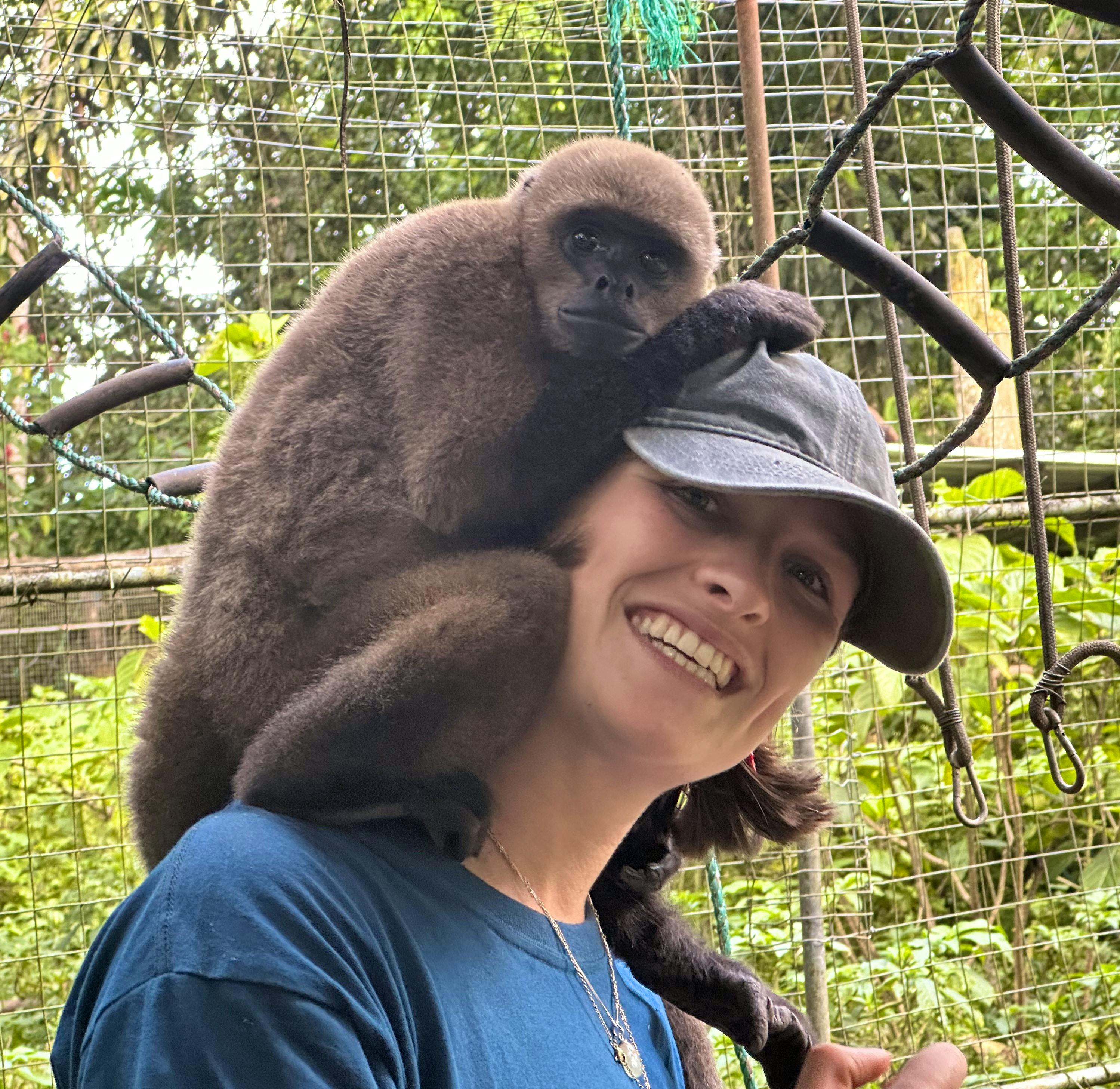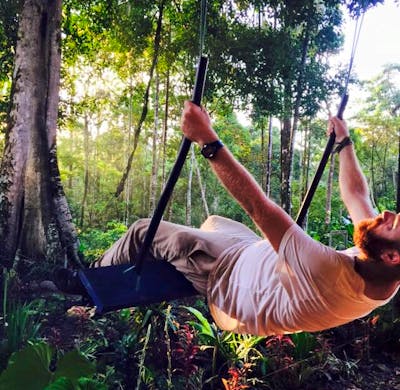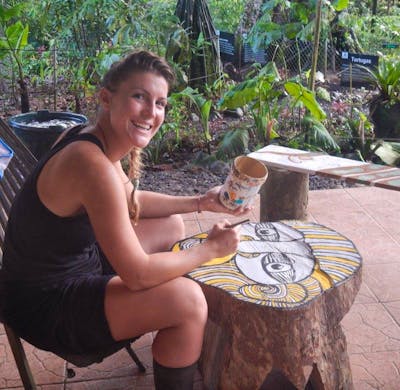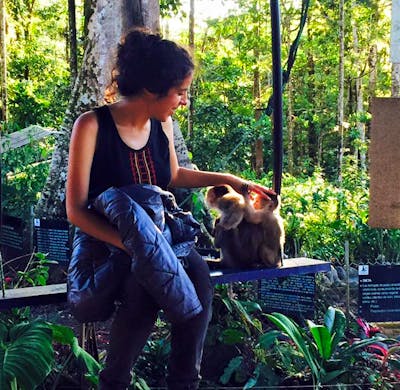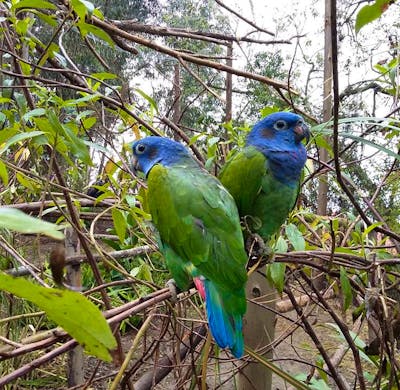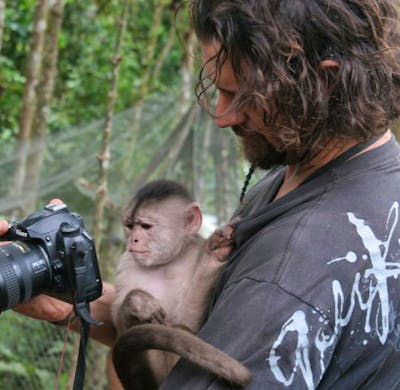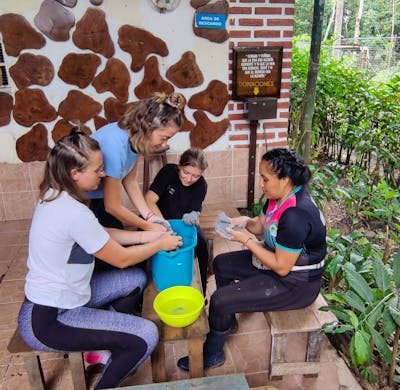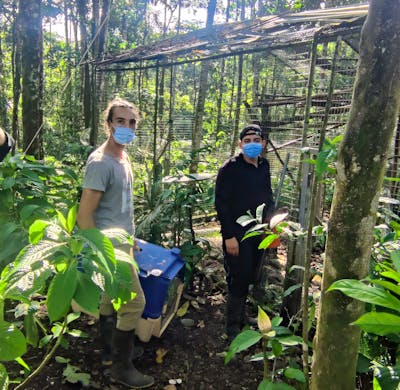from 170€
Wildlife Rescue & Animal Caretaker
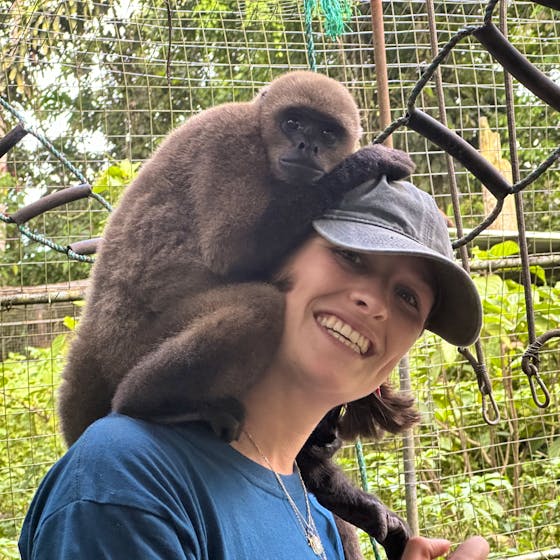
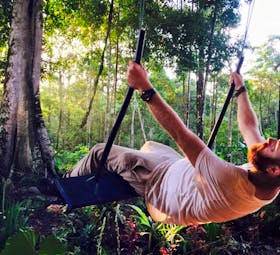
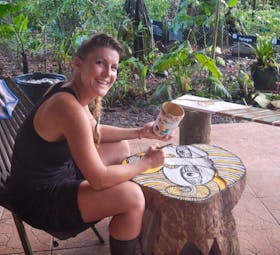
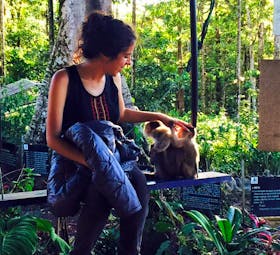
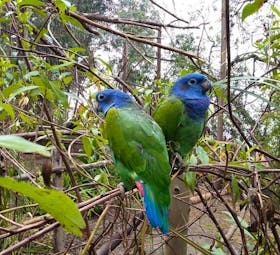
Highlights
- Volunteer to make unforgettable experiences with the wildlife in the Ecuadorian rainforest
- Work closely with professionals to cure and rehabilitate the animals
- Learn everything about creating their food and feeding them
- Explore the rainforest and make cultural experiences by meeting indigenous communities
- Enjoy ethnic food and beverages on local markets
Especially suitable
About the program
-Wildlife rescue in the Ecuadorian rain forest to offer the animals a good life quality in their natural habitat. -With special attention to Amazonian monkeys.
About the program
We are always looking for motivated volunteers who would love to help the animals at the center. It would be a pleasure to welcome you. The project is located in Puyo, in 2 hectares of primary forest and we welcome injured and orphaned animals, mostly monkeys. We have about 150 ...
Typical day
A typical day at the "Paseo de los Monos".
7:30 A wake up you will have coffee, bread, jam, eggs, yogurt, granola so you can prepare your breakfast.
8:00 am: The center staff arrives and the day begins.
8:10 am: Prepare and distribute food for the animals and check their health. Check the water for ...
Free-time activities
- Rest or take day trips to the jungle and visit indigenous communities.
- Visit the city of Puyo, which offers museums, boardwalks, trails, parks and environmental projects, interesting restaurants and bars, entertainment ...
Requirements
What's Included
What's NOT included?
Details on arrival
- The program is available all year round. It is possible to start the program every day of the week.
We host volunteers all year round with no maximum stay and a minimum stay of one week.
- We offer a family atmosphere,
-We are friendly and respectful of your food tastes.
-Our house is prepared to receive volunteers of all ages and also groups of families, we are a safe space for the little volunteers, who travel with mom and dad.
Program fees
Meet your organization
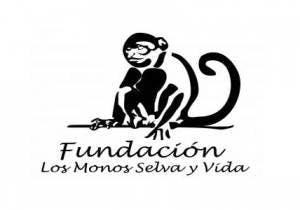
El Paseo de los Monos
Non-profit - founded in 2005
Verified by Volunteer World
Coordinated by
Yvan
About the project
15 reviews ·  4.6
4.6
Location

You might also be interested in
-
Amazon Rainforest
Families with small kids
Parrot
Bird Sanctuary
Monkeys
Sloths
Latin America
Family Volunteering
50 Plus Volunteering
Under 18s Volunteering
Voluntouring
Volunteer Trips for College Students
Mission Trips
Adults
Couples
Group Volunteering
Global Volunteer Opportunities
Projects Abroad
High School Volunteering
Best Volunteer Programs
Wildlife in Ecuador
